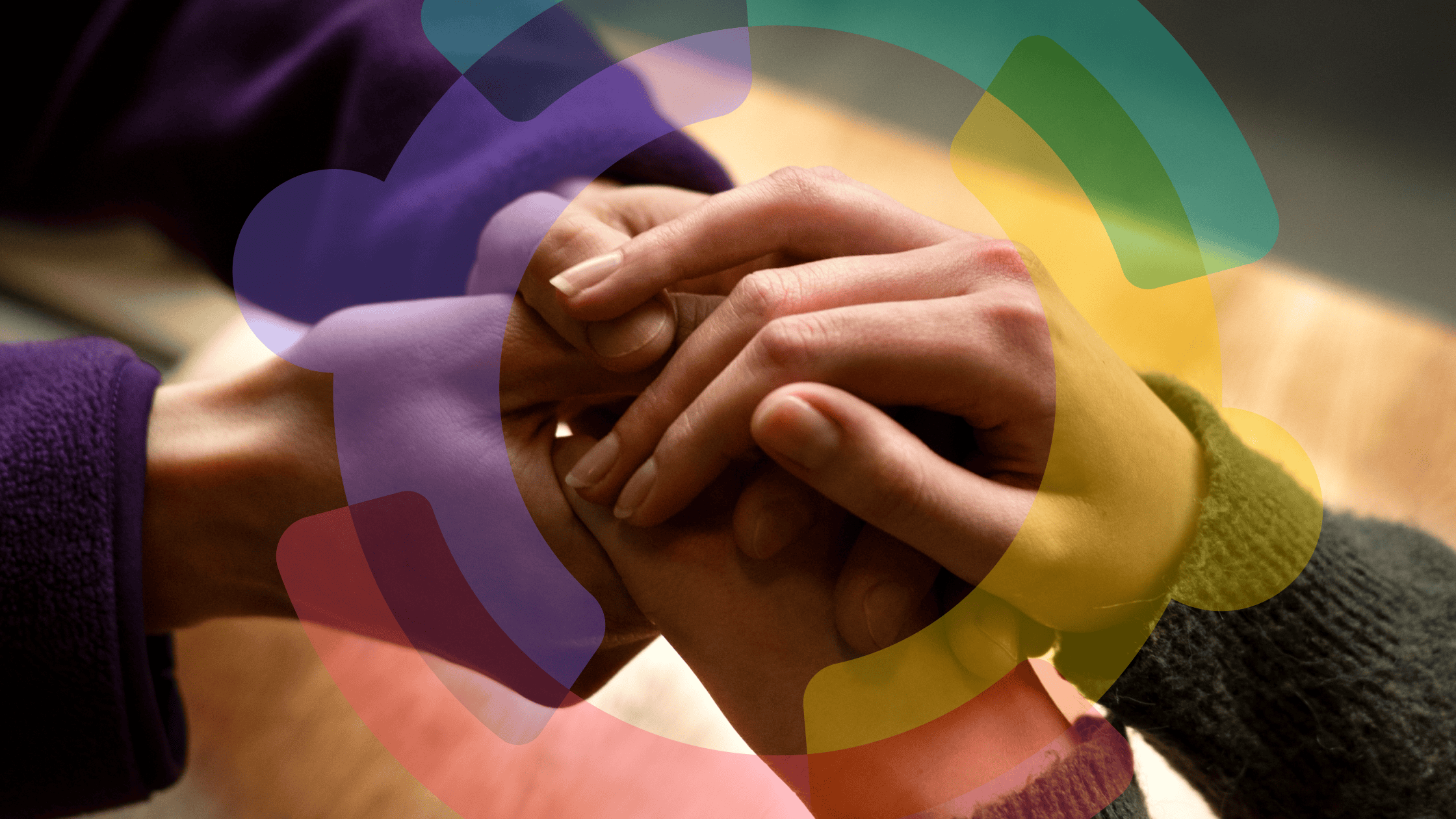Warning: Undefined array key "uniqueId" in /home/storm/sites/ddwus-nimsite-uk/public/wp-content/plugins/generateblocks/includes/blocks/class-container.php on line 997
Some days, just waking up is brave.
It’s not the kind of bravery that gets celebrated. It doesn’t come with applause or recognition. But for those living with trauma, burnout, or the weight of long-term mental health challenges, even the smallest acts of getting through the day can be deeply courageous.
The world often paints resilience as something bold and loud—charging forward, pushing through, staying strong no matter what. But when you’re doing your best just to exist within a body or mind that feels heavy, that version of resilience can feel out of reach, even punishing.
It sets a standard that ignores how hard it is to simply keep going.
We’ve learned that true reliance isn’t about doing everything alone. It’s about knowing your limits, honouring your needs, and choosing to stay connected, even when life has made that difficult.
Progress, in this context, is often quiet. It’s not about breakthroughs or grand moments. It’s about steady, grounded choices—ones that strengthen your roots, even if no one else sees them.
This isn’t about performing strength. It’s about finding it on your own terms. And recognising that slow, gentle growth is still growth.
The Myth of Big Recovery
We’re often told that healing is something you work towards—and that once you get there, you’ll know.
There’s a sense that recovery should follow a clear arc: from crisis to coping to thriving, with visible milestones and progress that makes sense to others.
But for many people living with trauma, neurodivergence, or long-term mental health conditions, that idea of “big recovery” doesn’t reflect their reality.
It can feel more like a myth than a goal—something imagined by systems that have never really sat in the mess of what it means to live through hard things.
Healing, in truth, rarely unfolds in straight lines. It loops, pauses, unravels, and restarts.
Some days are manageable. Others bring old wounds back to the surface for no obvious reason. And in between, there are countless small acts of survival that rarely get noticed but carry so much weight.
The pressure to be constantly improving can create its own kind of harm. It turns recovery into a performance, one that doesn’t leave room for exhaustion, regression, or simply existing as you are.
When the world only values outcomes—being “better,” “independent,” “productive”—it’s easy to feel like you’re failing, even when you’re doing your absolute best.
We believe it’s time to let go of this idea that healing has to be fast, linear, or impressive.
We’ve seen how small, steady shifts—choosing to engage, letting someone in, showing up to a group even when you’re not sure what to say—can be the strongest signs of growth. These moments matter. They are recovery, too.
Because real healing isn’t loud or dramatic. It’s rooted. It’s personal. And often, it starts by giving yourself permission to stop chasing someone else’s version of “better.”
What Reliance Really Means
Reliance is often confused with independence—this idea that strength means doing everything on your own, without needing anyone, without ever falling apart.
But when you’ve lived through trauma or ongoing mental health challenges, that version of strength can feel not just unrealistic, but unsafe.
At Amitola, we talk about reliance in a different way. Not as something you have to prove, but something you gently grow into.
Reliance, for many of us, begins with learning to trust ourselves again—our instincts, our needs, our rhythms.
It’s found in the quiet decisions we make to protect our peace, to ask for what we need, or to say no when something feels too much.
It’s built slowly, in moments that don’t always feel significant, but create a foundation over time.
It might look like:
- Naming a feeling instead of burying it.
- Letting someone walk alongside you, even when connection feels risky.
- Making a small routine—a morning coffee, a walk, a grounding breath—something you can return to.
- Noticing when you’re near your edge, and choosing rest instead of pushing through.
These are not signs of weakness. They are the markers of deep, inner strength. Reliance isn’t about being unshakable—it’s about knowing what steadies you.
For many of the people we support, just showing up is a brave and resilient act.
When the world has taught you that you’re too much, or not enough, it takes enormous courage to keep reaching for something different. That reaching? That’s reliance. Not because you never fall—but because you find ways to rise in your own time, on your own terms.
Lasting Healing it Built One Step at a Time
In many spaces, growth is measured by speed—how quickly you bounce back, how far you’ve come, how much you’ve “achieved.” But real, lasting healing doesn’t come from rushing forward. It comes from laying down roots—slowly, quietly, in your own time.
We see growth as something that happens from the inside out. It doesn’t have to look impressive to be real. It just has to feel safe, steady, and true to you.
Here’s what that can look like—step by step:
Step 1: Create safety, not pressure
Before anything can grow, it needs safe ground. That might mean having a space where you’re not judged, where you can be messy, uncertain, or silent without anyone trying to fix you.
At Amitola, we hold that space. It’s not about pushing you to talk or act—it’s about letting you be.
Step 2: Notice what steadies you
Strong roots start with small, grounding practices. That could be a morning routine, a calming object, a familiar face, or even a phrase that brings comfort.
These are the things you return to when the world feels shaky. Take time to notice what helps you settle, even just a little.
Step 3: Allow slow growth
Healing isn’t a race. Some days will feel forward-moving; others might feel like steps back. Both are part of the process. What matters is consistency, not perfection.
One small choice, repeated over time—like showing up to a drop-in, opening up just a little, or taking time to rest—is how roots grow.
Step 4: Honour what others can’t see
Progress isn’t always visible. Sometimes your biggest wins will be internal: setting a boundary, feeling an emotion without shame, reaching out before you spiral.
These quiet victories deserve to be recognised—even if no one else notices.
Step 5: Stay connected
Roots grow stronger in relationship. Whether that’s peer support, a trusted worker, or a space where lived experience is shared openly—connection helps remind us we’re not alone.
When you let go of the pressure to prove something, you give yourself the space to truly heal.
Your Wins Count – Even If No One Sees Them
So much of what makes healing real isn’t obvious from the outside.
There’s no certificate for getting out of bed when it feels impossible. No applause when you choose to take a deep breath instead of shutting down. No headline when you go to a group, even if you don’t say a word.
But these moments matter. They are the foundation of something strong and lasting.
When you live with long-term mental health challenges, the world often asks for proof that you’re getting better. It wants visible change—something neat and explainable.
But the most powerful shifts usually happen quietly. They happen when you begin to trust your own pace, to care for yourself without shame, to choose connection even when you’re scared.
Progress doesn’t always look like feeling good. Sometimes it looks like surviving something that used to break you. Sometimes it’s allowing yourself to rest without guilt. Sometimes it’s saying, “I need help” before you reach crisis.
These are wins. They might not be loud, but they’re real.
At Amitola, we see and honour these moments. Not because we need you to prove anything—but because we know how hard they can be. We understand that being human is hard work. And choosing to keep going, in any way that you can, is always enough.
You don’t need to perform strength to be strong. You don’t need to explain your pain to deserve care. Whatever your journey looks like, your steps forward—no matter how small—are valid.
And you don’t have to walk them alone.
A Reflective Prompt – What Keeps You Steady?
Healing can feel like a moving target—especially when you’re measuring yourself against ideas of progress that were never made for you. But when you pause and look more closely, you might find that you’ve already come further than you realise.
You’ve kept going on days you didn’t want to.
You’ve asked for help, even if it felt uncomfortable.
You’ve made choices that protected your peace.
That’s something.
This space is for you to gently reflect—not on how far you think you should be, but on what’s helped you stay rooted when things have felt shaky.
Here are a few questions you might sit with:
- When have you felt most steady—what helped create that feeling?
- What small routines or reminders help you feel grounded?
- Who or what brings you back to yourself when you feel overwhelmed?
- What would it feel like to honour small wins, instead of waiting for big ones?
- What kind of support do you need right now—and how could you ask for it?
You don’t need to have all the answers. You don’t need to fix anything today.
This is simply an invitation to notice. To honour what keeps you going. And maybe, to remind yourself that even on the hardest days—you are still here. Still holding on. Still growing.
And that is enough.
No matter where you are on your journey—whether you’re just beginning to reach out, or simply trying to hold steady—Amitola is here.
We offer more than services. We offer space. Space to slow down, to feel seen, to grow in your own time, and on your own terms. You don’t have to explain everything. You don’t have to be “ready.” You just have to be you.
Whenever you’re ready, we’re here to walk beside you.


